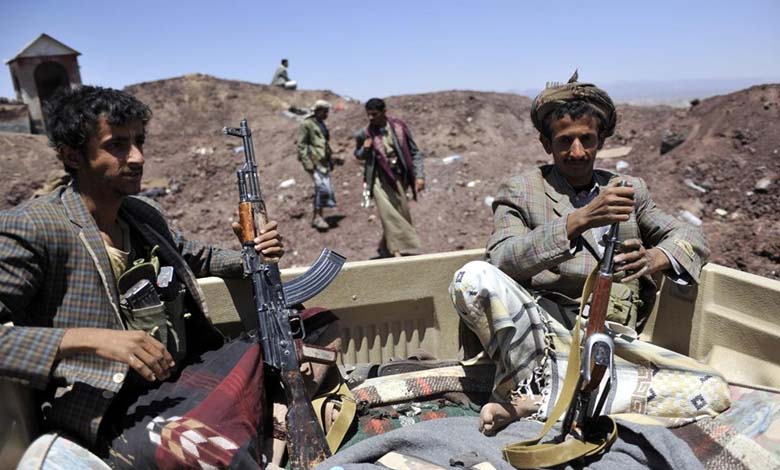Houthis and the Muslim Brotherhood share sabotage roles in Aden… Details

Yemen’s temporary capital, Aden, has for years been subject to a systematic and dangerous infiltration of state institutions by individuals loyal to the Houthi militias. Operating under the guise of public service, these individuals carry out dual roles aimed at destabilizing the region and undermining efforts to restore state authority in the South.
-
The Muslim Brotherhood in Yemen Sparks a Fuel Crisis… What’s the Story?
-
A Major Blow to the Muslim Brotherhood in Yemen
More concerning, according to informed sources cited by Al-Mashhad Al-Arabi, these actors are not acting independently. They form part of a broader network led by the Muslim Brotherhood, which maintains influence within certain state institutions and serves as the civilian front for an escalating political and security collaboration between the Brotherhood and the Houthis.
This undeclared alliance, based on mutual interests rather than ideological harmony, has turned Aden into an open arena for a silent war waged from within institutions. Houthi directives and instructions are funneled through Brotherhood-linked channels embedded in civilian, regulatory, and service bodies.
-
Khat Taxes… A Realistic Picture of Corruption by the Muslim Brotherhood in Yemen
-
Corruption of the Muslim Brotherhood in Yemen… Embezzlement, Extortion, and Trading in People’s Needs
The Houthis exploit this administrative cover to gather accurate intelligence on institutional weaknesses, while the Muslim Brotherhood provides logistical, political, and even media support to a shared agenda aimed at undermining the South from within, without direct military confrontation.
Reports suggest that these Houthi-affiliated individuals contribute to the creation of service crises and the disruption of state institutions, fueling public discontent. This discontent is then manipulated to tarnish the South’s image abroad through false reports sent to international organizations, presenting a distorted view of the humanitarian and security situation.
-
Abuses, Extortion, and Theft… Scandals Rock Brotherhood Strongholds in Yemen
-
Southern Yemen Launches New Online Campaign against the Brotherhood… Details
Observers warn that the continued presence of these networks within state institutions constitutes a serious security breach, requiring a comprehensive response that goes beyond administrative measures. They call for institutional and intelligence cleansing that restores the integrity of public service and blocks efforts to convert it into a tool for sabotage.
They affirm that the South is currently engaged in a dual battle: a military one on the frontlines, and an institutional one at home—against covert cells operating under the cover of state structures but serving a conspiratorial agenda aimed at sowing chaos and dismantling all the achievements of liberation.
-
American Airstrikes on Houthis Expose the Double Standard of Yemen’s Muslim Brotherhood
-
The Yemeni Muslim Brotherhood Violates the Sanctity of Cemeteries… Details
-
Yemen’s Muslim Brotherhood Pledges Allegiance to the U.S.… What Are Their Goals?
-
The Yemeni Street Breaks Free from the Muslim Brotherhood’s Restrictions… What’s the Story?












